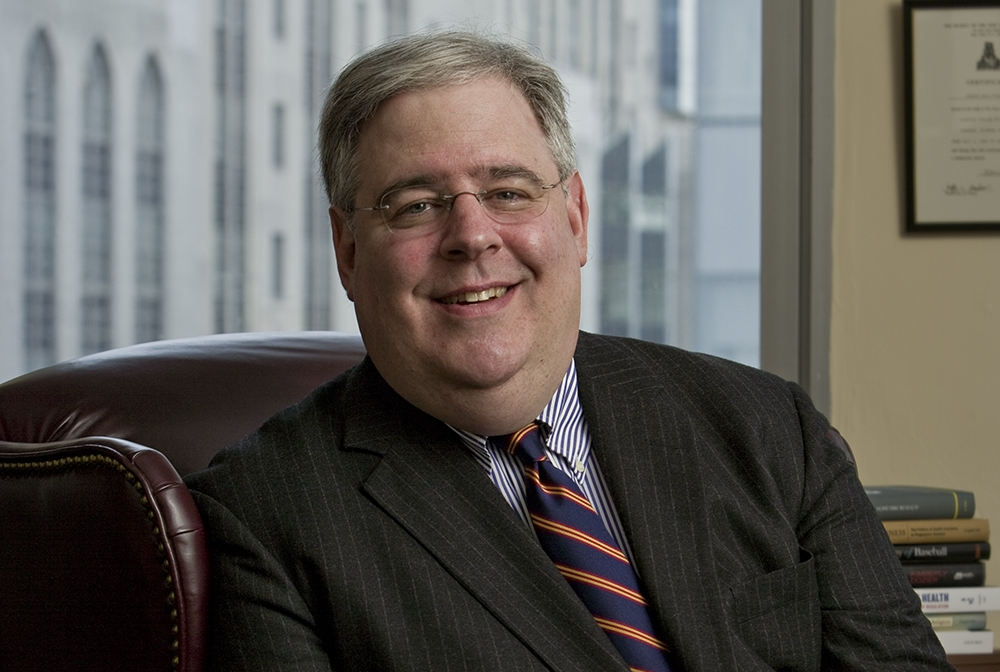Most Patients Allow Proxies Leeway in End-of-Life Decisions, Researchers Find
NEW YORK (February 28, 2005) — The Patient Self-Determination Act, passed by Congress in 1990, upholds the rights of patients to grant power-of-attorney or "proxy" status to a loved one when it comes to tough decisions on end-of-life care.
In most cases, patients leave explicit instructions as to their wishes, should they become incapable of making these decisions themselves.
But how tightly do patients really expect proxies to adhere to these instructions, given changes in prognosis?
A new study from NewYork-Presbyterian Hospital/Weill Cornell Medical Center researchers suggests the pact between patient and proxy is much deeper and more flexible than previously thought.
"It appears that it's not so much a contract as it is a kind of covenant, based on mutual experience and trust. And our study found that, because of this trust, patients allow proxies discretionary moral judgment that allows them to go beyond cryptic instructions to either withhold or provide care," said lead researcher Dr. Joseph J. Fins, Director of Medical Ethics at NewYork-Presbyterian/Weill Cornell and Chief of the Division of Medical Ethics and Professor of Medicine, Public Health, and Medicine in Psychiatry at Weill Cornell Medical College in New York City.
The findings are published in last month's issue of the Journal of Pain and Symptom Management.
Today in the United States, only about 30 percent of very ill patients avail themselves of proxy arrangements where they designate a second party to act on their behalf should they become incapacitated.
"In part, these very formal arrangements haven't really caught on because advance-care planning has been predicated on the notion of this arrangement as an ironclad contract," Dr. Fins said. "But we've long speculated that this 'contract' paradigm simply isn't a good fit with how patients and families make tough, real-life decisions."
In their study, Dr. Fins and colleagues presented three hypothetical end-of-life scenarios to 50 geriatric patients and their chosen proxies, who had already been chosen to engage in advance-care planning. The researchers also presented these vignettes to another 52 individuals with past experience as proxies for a loved one who had since died.
In the vignettes, the patient suffered from either end-stage cancer or congestive heart failure, or had experienced a severely debilitating stroke from which there was little hope of meaningful recovery. Each of the hypothetical patients had been placed on ventilator support.
After presenting the scenarios to patients and proxies, researchers asked both parties what they believed was the ethically correct action to take — even in cases where the patient had left instructions to either withhold all life-extending care, or to "do everything possible" to extend life.
The researchers report that, while patients' decisions were always more certain than those of proxies (who tended to waver more before coming to a decision), both parties agreed that leeway in decision-making was advisable when circumstances intervened.
"For example, when treatment seems futile, and quality of life deteriorates, most patients and proxies agreed that the 'do everything' mandate might be reconsidered in light of circumstances, even if the patient had requested more aggressive care," Dr. Fins said.
Patients and their representatives were less ambivalent when it came to patient instructions to 'do nothing,' however, although flexibility remained.
"I think when a patient says they don't want something, it's taken more seriously than when someone says 'do everything' — especially when any intervention begins to appear futile," Dr. Fins said. "We found that, in many of these cases, 'no means no,' while 'yes' was more open to interpretation."
The bottom line, he said, is that the patient-proxy dynamic is a reciprocal relationship, not simply an exercise in patient self-determination. In this relationship, proxies try to interpret patient wishes amid changing circumstances, while patients give loved ones leeway in making judicious, ethical decisions.
"It's all about trust," Dr. Fins said. "Even though we have a law called the Patient Self-Determination Act, it's not just about the patient making this or that decision. It's not a 'contract' — you have a contract with your contractor, your business partner. It's more of a covenant here. People are drawing on a deeper knowledge of the other — in most cases our proxies had known the patient for more than 40 years. We need to recognize that."
He said the study may also help shift the focus to the proxy, whose role has too often been overlooked.
"We spend a lot of time talking about patient self-determination, and a lot less time thinking about the stresses proxies are under; when the person they'd most like to consult with simply isn't available to them anymore," Dr. Fins said. "Hopefully this will open up debate as to what patients, proxies, physicians, and policymakers should expect from these types of relationships."
Using lessons learned during their research, Dr. Fins and others at NewYork-Presbyterian/Weill Cornell's Division of Medical Ethics have produced Fidelity, Wisdom & Love: Patients and Proxies in Partnership. This workbook and accompanying video — featuring award-winning actress Kathleen Chalfant — is aimed at helping individuals have meaningful conversations with proxies regarding end-of-life decisions and care. Proceeds help fund the patient care, education, and research mission of the Division of Medical Ethics.
The workbook and video are available at www.fidelitywisdomandlove.org.
The study was funded by a grant from the Fan Fox and Leslie R. Samuels Foundation.
Co-authors include Barbara S. Maltby and Dr. Ronald Adelman, also of Weill Cornell; Dr. Erika Freidmann, of Brooklyn College of CUNY, New York, and the University of Maryland, Baltimore; Dr. Michele G. Greene, of Weill Cornell and the Brooklyn College of CUNY, New York; Dr. Kaye Norris, of the Life's End Institute: Missoula Demonstration Project, Missoula, Montana; and Dr. Ira Byock, of the Life's End Institute: Missoula Demonstration Project and Dartmouth-Hitchcock Medical Center, Lebanon, NH.
Office of Public Affairs
pr@nyp.org

